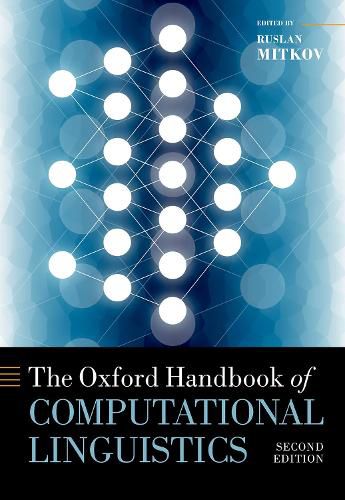Readings Newsletter
Become a Readings Member to make your shopping experience even easier.
Sign in or sign up for free!
You’re not far away from qualifying for FREE standard shipping within Australia
You’ve qualified for FREE standard shipping within Australia
The cart is loading…






Ruslan Mitkov’s highly successful Oxford Handbook of Computational Linguistics has been substantially revised and expanded in this second edition. Alongside updated accounts of the topics covered in the first edition, it includes 17 new chapters on subjects such as semantic role-labelling, text-to-speech synthesis, translation technology, opinion mining and sentiment analysis, and the application of Natural Language Processing in educational and biomedical contexts, among many others. The volume is divided into four parts that examine, respectively: the linguistic fundamentals of computational linguistics; the methods and resources used, such as statistical modelling, machine learning, and corpus annotation; key language processing tasks including text segmentation, anaphora resolution, and speech recognition; and the major applications of Natural Language Processing, from machine translation to author profiling. The book will be an essential reference for researchers and students in computational linguistics and Natural Language Processing, as well as those working in related industries.
$9.00 standard shipping within Australia
FREE standard shipping within Australia for orders over $100.00
Express & International shipping calculated at checkout
Ruslan Mitkov’s highly successful Oxford Handbook of Computational Linguistics has been substantially revised and expanded in this second edition. Alongside updated accounts of the topics covered in the first edition, it includes 17 new chapters on subjects such as semantic role-labelling, text-to-speech synthesis, translation technology, opinion mining and sentiment analysis, and the application of Natural Language Processing in educational and biomedical contexts, among many others. The volume is divided into four parts that examine, respectively: the linguistic fundamentals of computational linguistics; the methods and resources used, such as statistical modelling, machine learning, and corpus annotation; key language processing tasks including text segmentation, anaphora resolution, and speech recognition; and the major applications of Natural Language Processing, from machine translation to author profiling. The book will be an essential reference for researchers and students in computational linguistics and Natural Language Processing, as well as those working in related industries.